There’s an inner battle we have with ourselves that can make even the most prepared person fall apart on stage.
Having the right outlook on things can make all the difference in the world between success and failure when performing.
In Part 2, I wrote about physical things you can do to help prepare for a performance. In this segment, I will talk about mental and emotional things that will help (or hinder) your preparation. First, I have a couple of brief stories to tell:
When I begged my parents to let me take lessons, I was 5 years old. When they agreed (after a trial lesson or two with a teacher), I had to commit to 10 years of lessons. Neither of them studied piano for any length of time, but they both understood that it required a commitment if we were going to do it. A 5 year old doesn’t know what 10 years means, but I’m glad that they had me promise and held me to that!
Anyways, I was 15, and it was the end of the school year coming up and time for our year-end recital. I had been working on a Kuhlau sonatina for a few months (maybe longer!), and while I had a teacher who was a saint who tolerated my erratic practicing and shyness, I was ready to move on. Honestly, if she had started giving me some Beethoven or Chopin to play, I’d have probably stayed longer. But I knew my time was up, and that I was stopping lessons after the recital.
I was really looking forward to it. So much so, that it overshadowed the performance altogether. My mind was set on what it would be like to be done with lessons and just playing whatever I wanted to play. I recall just a little bit of nerves, but I was just so happy about quitting that I forgot all of that. I played a near-perfect performance. My teacher asked me afterwards if I really wanted to quit after that great performance (I told her yes). But that was a performance that stuck with me because it was one of the very few where I played well and wasn’t that nervous. Still, I couldn’t figure out what the key was – certainly saying I’m going to quit right after each performance wouldn’t work. So it remained a mystery to me.
Fast forward to my college years, and it was my first jury as a voice performance major. My teacher had a rather unique approach to teaching which consisted entirely of speaking and maybe if I spoke well enough I’d get to sing a note or two. We went through repertoire only a few times. So when it came time for juries, I was not really prepared with my two or three songs I needed (can’t remember how much I should have known since I didn’t really know). I had one song I knew very well, and I know there was another that I only had the first verse, but we hardly touched it in lessons. So my teacher said to sing the one, and if they asked for the other to tell them I only knew the first verse and she’d explain we hadn’t worked on it much in lessons, and not to worry about it.
Well, of course, if one of my students used that excuse in a jury, I’d be appalled since they are adults and are responsible for learning their own music. But anyways, I didn’t have that sense of responsibility back then, so when my teacher said not to worry, I didn’t. Walking over to the recital hall the morning of my juries, it was such a beautiful spring day. The weather matched my song, Widmung by Robert Schumann, perfectly. I was looking forward to singing, and looking forward to the year being over when I could go home and be a vegetable all summer.
My performance went extremely well. I felt comfortable on stage, I knew my music and wasn’t trying to think what the faculty thought of me or anything. I also sang the one verse of the other song I knew. All was good (and I passed my juries).
Outlook
Reflecting on these experiences, what was the driving factor behind not being nervous? I think there are a couple of things, but the main one is that I didn’t worry. In both instances, I didn’t fret over the impending performance and instead focused on how I’d feel afterwards, or even enjoying things that very day. So rather than filling my mind with all the “what-ifs” of a performance, I filled it with positive things that I looked forward to, and therefore I was able to perform as if no one was listening in.
In contrast to other performance experiences, the weeks and days leading up to a performance were filled with worry. Some specific about my playing or singing, much of it about acceptance from the faceless, nameless people in the audience, that were often imagined as being overly harsh and unforgiving. Totally unfounded, but my imagination would just run wild with these kinds of thoughts.

So I think a huge part of preparation should consist of simply not allowing your mind to wander in this direction of worry. I will often tell students that when they catch themselves in the act of building up this anxiety, they are to say to themselves, “I will be prepared when the time comes,” and force themselves to think on something positive, either related to the performance or something afterwards, or even something completely unrelated that always makes them smile. Then they just make sure they prepare by practicing properly.
This gets easier to do the more you do it, and you might even be able to turn nervousness about a performance into love of a performance,
but unless you have some positive performance experiences this might be too far a leap at first. Not everyone will love performing and may only be a necessary evil – or an unnecessary one that they may choose to not participate in. Everyone is different and you may change your tune after overcoming the anxiety into loving it, or not. This is something you have to decide for yourself. For those that desire to love performing, it can be done.
Inner Judges
In her book, Soprano On Her Head, Eloise Ristad refers to the “inner judges” that we have that tell us many half-truths or even outright lies. They are voices in our head that we give authority over us and we listen to, but really most of what they have to say is not helpful nor true. These judges start speaking right away as a performance day looms closer, and they usually take over during a performance if left unchecked.
I ask you to take a moment and pretend there is a person who is studying the same instrument and will be participating in the same performance you are. They have a similar background as you do as well, and can play at the same level. As you wait for the performance to start, you strike up a conversation and you hear them say things like, “I’m not very good,” or, “I don’t belong here,” “My piece sounds awful,” and “I make stupid mistakes all the time.” Maybe at first you’d try to cheer them up, but they persist no matter what evidence you give them that what they say isn’t true and eventually, you’d think this person was a downer and you’d just try to distance yourself from them. Rightly so.
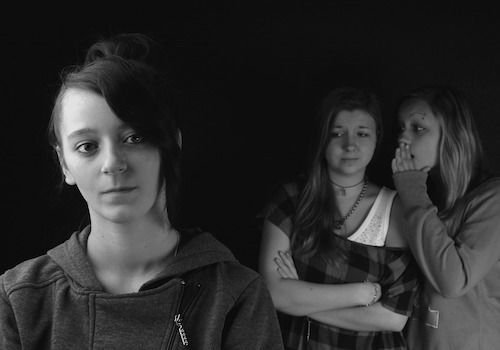
Or what if you overhear a couple of audience members speaking of a performer saying how awful it was, how untalented they were and unprepared they seemed, and pointing out all their mistakes. How would you feel? Hopefully, you’d feel indignant on behalf of the poor performer who was only doing their best and at least they were brave enough to get up there and try and maybe they’ll learn to do better next time. Rightly so.
But aren’t all these things (and worse) what we tell ourselves as a performance approaches? We wouldn’t tolerate it from another person, yet we allow ourselves to behave this way. Why aren’t we just as indignant? Why wouldn’t we distance ourselves from our “Debbie Downer” selves in much the same manner?
I think it’s really important to recognize these curses we place on ourselves, and shut them up. They have no business being there and they won’t help. Your job is to prepare as best you can, and make sure these worries don’t take over. Treat yourself like you may act in those two scenarios.
Don’t allow yourself to get away with lies. If it’s true that you aren’t prepared, then do something about it or wait to perform when you can be better prepared, and make sure it happens. Give yourself a bit of grace, and focus on the things that you are doing well right then and there. Be fair to yourself.
Also, recognize that mistakes aren’t the end of the world. If you prepare for them with your Plan Bs, then it’s not going to be that big of a deal in a performance: they happen, and they’re over with as you move on unfazed. Tell yourself that you trust in what you’re doing to prepare, and then put it out of your mind. Think of something else, either related to the performance or something completely different. It doesn’t matter what it is, but it should be positive and it should distract you from that negative circular thinking.

Do this every time you notice it popping up. At first, you may realize you’ve been ruminating on the negative stuff for a while before you catch yourself. That’s OK, just whenever you catch yourself, follow those steps. You’ll begin to catch yourself earlier and earlier in the thought process, until eventually you can anticipate when those feelings start to seep in before the actual negative thoughts come. You still follow the same procedure. They may never disappear, but you have a way of handling them whenever they happen.


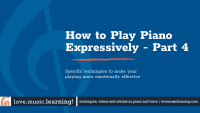
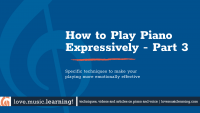
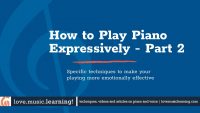
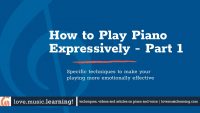


Leave A Comment
You must be logged in to post a comment.